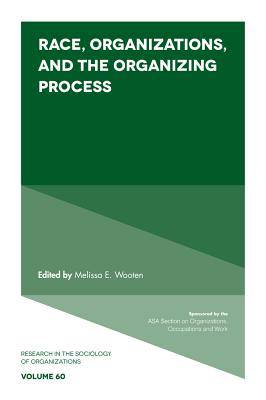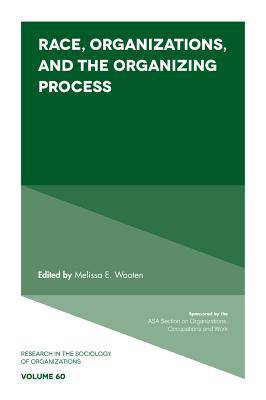
- Afhalen na 1 uur in een winkel met voorraad
- Gratis thuislevering in België vanaf € 30
- Ruim aanbod met 7 miljoen producten
- Afhalen na 1 uur in een winkel met voorraad
- Gratis thuislevering in België vanaf € 30
- Ruim aanbod met 7 miljoen producten
Zoeken
Race, Organizations, and the Organizing Process
€ 206,45
+ 412 punten
Omschrijving
There have been few efforts to conceive of race as a characteristic that organizations possess or at the very least a characteristic that exists at the institutional level with which organizations must contend. In the United States especially, this belies our history of marking organizations and organizational practices as "Black" or "White", essentially "racing" organizations. Despite the undoing of legally sanctioned racial segregation, we continue to use such demarcations to classify organizations as Black colleges or Black media companies.
Sociology is ill equipped to explain this history and its modern day consequences in part because we lack bridges between those studying the problems of race and those studying the problems of organizing. Consequently, we cannot adequately speak to how race affects organizations, markets, or institutions.
This book brings together scholarship that interrogates the relationship between race and the organizing process for the founding of organizations, the organizational pursuit of human, financial, or political resources, organizational choices regarding strategic orientation and structural configurations, and the role of institutional logics that saturate organizations, industries, and markets with racialized ideologies.
Sociology is ill equipped to explain this history and its modern day consequences in part because we lack bridges between those studying the problems of race and those studying the problems of organizing. Consequently, we cannot adequately speak to how race affects organizations, markets, or institutions.
This book brings together scholarship that interrogates the relationship between race and the organizing process for the founding of organizations, the organizational pursuit of human, financial, or political resources, organizational choices regarding strategic orientation and structural configurations, and the role of institutional logics that saturate organizations, industries, and markets with racialized ideologies.
Specificaties
Betrokkenen
- Uitgeverij:
Inhoud
- Aantal bladzijden:
- 216
- Taal:
- Engels
- Reeks:
- Reeksnummer:
- nr. 60
Eigenschappen
- Productcode (EAN):
- 9781787564923
- Verschijningsdatum:
- 20/05/2019
- Uitvoering:
- Hardcover
- Formaat:
- Genaaid
- Afmetingen:
- 554 mm x 231 mm
- Gewicht:
- 408 g

Alleen bij Standaard Boekhandel
+ 412 punten op je klantenkaart van Standaard Boekhandel
Beoordelingen
We publiceren alleen reviews die voldoen aan de voorwaarden voor reviews. Bekijk onze voorwaarden voor reviews.











